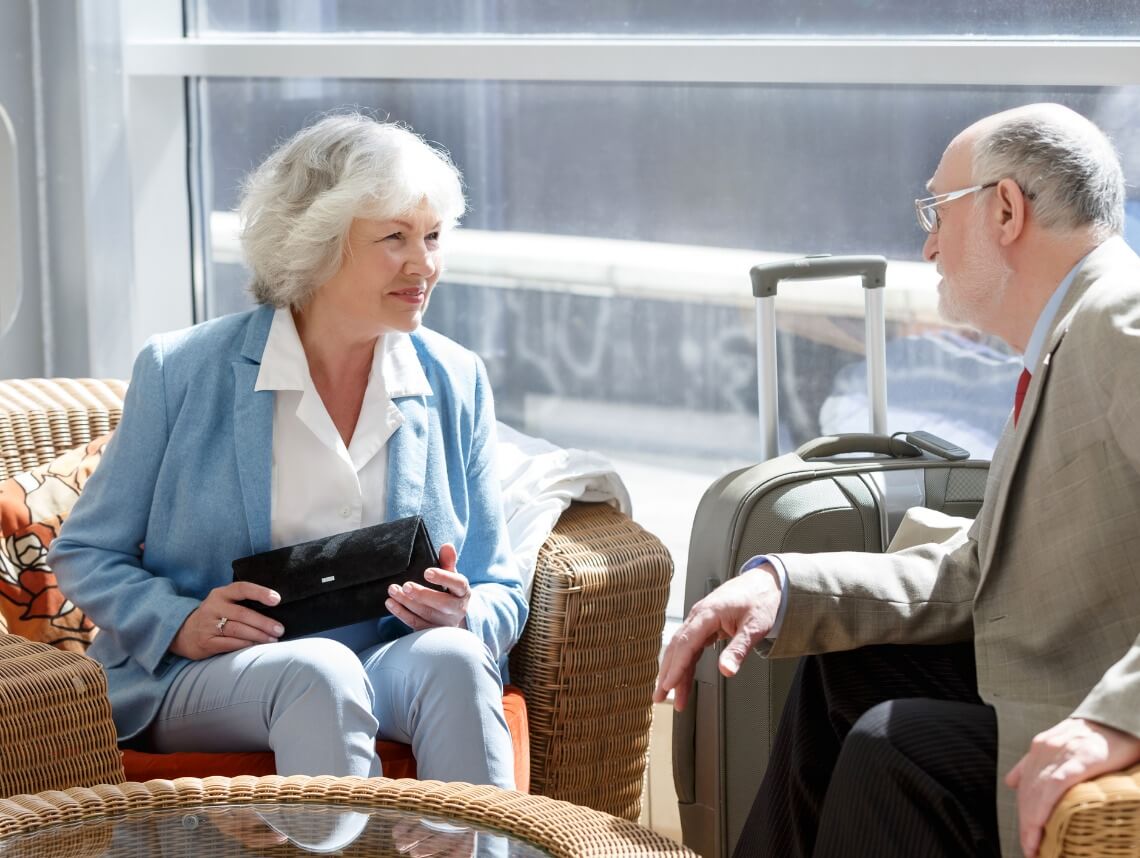Whether you’re traveling abroad or here in the United States, there are plenty of factors to consider when traveling with seniors this summer. Everything from climate change to crossing time zone boundaries can make travel difficult for seniors; therefore, we have compiled a brief list of items to consider when planning your next vacation.
Booking Your Flights
Before setting any travel plans in stone, consult a doctor to be sure your elderly loved one is healthy enough to fly. If making travel plans months in advance, consider purchasing travelers’ insurance for your trip in case of any medical emergencies or unexpected changes.
- Choose flights with minimal layovers and plane changes.
- Be sure the airline you choose allows ventilators, respirators, CPAP machines, and other assistive devices before booking. If so, plan ahead for proper storage on-board and gather all backup supplies (batteries) ahead of time. Contact TSA or FAA for regulations regarding these devices.
- Be sure to request priority boarding and special seating (more leg room, close to lavatory) to make the flight as comfortable and stress-free as possible.
- Be sure to request wheelchair assistance ahead of time to take your loved one to the departure gate quickly and safely. Also, arrange for a wheelchair upon arrival to take your loved one to baggage claim.
- Allow plenty of time to pass through any security checkpoints or other unforeseen delays.
Booking Your Hotel
- Request easily accessible, first-floor rooms.
- Rooms with amenities such as walk-in showers/tubs are a plus when ensuring the safety of your loved one.
- Contact your hotel ahead of time to ensure transportation is wheelchair accessible and can accommodate the needs of your elderly loved one.
Before You Go
When visiting an unfamiliar place, scope out all local medical facilities and hospitals in case of an emergency (including pharmacies).
Be sure to schedule a check-up appointment to confirm your loved one is healthy enough to fly. If visiting a foreign location, it is important to receive any necessary vaccinations and shots to prevent illness.
Important tips for traveling with medications:
- Ensure safe and proper storage of all medications during your trip.
- When packing carry-on luggage, be sure to keep all medications together in properly labeled bottles. Bring all necessary paperwork for all medications to avoid any delays at security checkpoints.
- When traveling to another time zone, talk with a doctor about how to manage the time change and when medications should be taken.
- If visiting a location with a significant climate change, talk with the doctor to verify whether any medications have side effects due to a drastic change in temperature.
- It is important to update and bring along any identification cards with medical information such as current and previous medical conditions, current medications (including dosage & instructions), as well as contact information for doctors and other emergency contacts.
Keep in mind that traveling with seniors takes patience. As we age, everyday activities such as walking and traveling become difficult to do without the assistance of others.
Contact Sonas for Home Health Care Services
Sonas Home Health Care can help you prepare for an upcoming trip with our Travel Buddy service. We refer loving caregivers to provide personalized care, from transportation to and from appointments to packing your loved one’s belongings for the trip.
If you have questions or would like to request a caregiver, give us a call and ask about our Travel Buddy service or request a Complimentary In-Home Assessment.
If you or an aging loved one are considering home health care services in Florida, contact the caring staff at Sonas Home Health Care. Call today (888) 592-5855.
This blog was reviewed by Jillian Miller BSN, RN — Director of Nursing for Sonas Home Health Care’s Tampa Bay market — for clinical accuracy. Jillian Miller has been a nurse for 16 years — working primarily in pediatrics. She believes the best part of working with the pediatric population is when you see smiles from clients when you first enter the room. She loves seeing the difference you can make in families’ lives while providing the best care possible for them.

